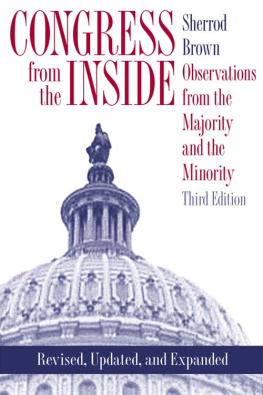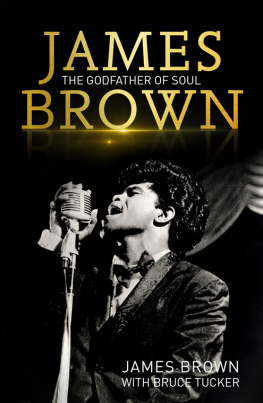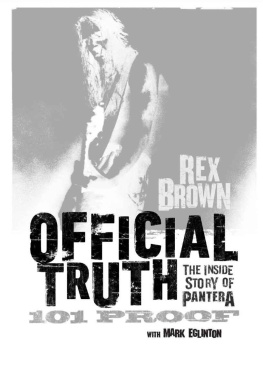1999, 2000, 2003 by The Kent State University Press, Kent, Ohio 44242
All rights reserved
Library of Congress Catalog Card Number 2003113910
ISBN 0-87338-7929-9
Manufactured in the United States of America
Third edition
07 06 05 04 03 5 4 3
Political cartoons by Dick Bartlett reprinted with permission.
Library of Congress Cataloging-in-Publication Data
Brown, Sherrod, 1952
Congress from the inside : observations from the majority and the minority /
by Sherrod Brown.3rd ed.
p. cm.
Includes index.
ISBN 0-87338-792-9 (pbk. : alk. paper)
1. United States. Congress. 2. Political partiesUnited States. 3. United States
Politics and government1989 I. Title.
2003113910
British Library Cataloging-in-Publication data are available.
CONTENTS
Election 1992: Getting There
In the District
In Committee
In the Chamber
The Budget
The North American Free Trade Agreement
The Great Health Care Debate
The Crime Bill
The Mail, the Phones, and Other Things
Election 1994
Intelligence and Surveillance
The Coup and the Revolution
Storming the Palace: The Government Shutdown
The Counteroffensive: M2E2
The Truce
The Campaign
The 105th Congress
Election 1998 and the 106th Congress
Florida 2000, Class Warfare, and a Missed Opportunity
September 11 and the 107th Congress
Redistricting
A Case Study of the Drug Industry and Its Political Power in the Halls of Congress
Tuberculosis: How an Issue Gets on the Public Agenda
War in Iraq
Postscript
PREFACE
T HIS BOOK IS ABOUT POLITICS , elections, governing, and people... powerful people. Not a kiss-and-tell, its an instructive book of what my first terms in Congress were like and what has transpired in the years since.
This story of a newly elected representative navigating his way through Congress begins in hopeful times, when most of us were optimistic that partisan gridlock was over, as a huge, diverse, goal-oriented freshman class was sworn in.
My five completed terms in Congress have provided an interesting perspective in a unique period of congressional history. The 103d Congress in 199394, the first time in over a decade when one party controlled the presidency and both houses of Congress, saw a brief period of high public expectation and a longer period of low performance. A decisive portion of the electorate thought that we moved too far too fast, especially on the budget and the crime bill. At the same time, we failed the public by our inability to pass health care reform, in large part because our efforts were characterized as proposing radical reform. And the Democratic president disappointed large numbers of Democrats and enraged Perot voters with his aggressive lobbying for the North American Free Trade Agreement (NAFTA).
My second term saw a group of dispirited Democrats defending our values against a buoyant crowd of Republicans who thought Americas political world had changed dramatically, permanently, and irreversibly. Republicans in the House passed, with great ideological fervor, issue after issue. Debate was limited; their certitude and determination were not. They felt certain that they were the vanguard of a movement that would elect a conservative president in 1996 and govern the country with conservative principles well into the next century. Before the government shutdown in late 1995, many Democrats thought they might be right. But by 1996, the Democrats seemed almost ascendant and the Republicans were in disarray. GOP bills died in the Senate or were vetoed by the president. Democrats realized that the public supported them on Medicare, education, and the environment. Republicans who came to Congress in 1994 ended up, to the horror of many of them, passing in 1996 an increase in the minimum wage, strengthening some environmental laws, and appropriating more money for educationnot because very many of them wanted to do so, but because they wanted to be reelected.
My third term, when the Republicans held the slimmest majority that either party has held since the early days of the Great Depression, saw a cautious time for an embattled Speaker, a struggle for power among embittered members of the majority leadership, and a Congress that accomplished very little. Congress was to be in session only eighty-nine legislative days in 1997, one of the most abysmal marks in decades. As John Dingell quipped, Most of those days didnt start until 5:00. And 1998 was even less productive.
Many of the Republican Revolutionaries of the Class of 1994 expressed their unhappiness with GOP leadership and their leaderships unwillingness to pursue the Republican agenda. Lindsey Graham, one of the most outspoken members of that class, muttered, Its about time to practice one or two things we preach. Ultraconservative Steve Largent, an Oklahoma Republican, after seeing a new round of spending unveiled by fellow GOP Transportation chairman Bud Shuster, proclaimed, The revolution is over.
In many ways, Congress itself has not recovered from the strategy adopted by Newt Gingrich almost twenty years ago. His years of incessant criticism of Congress enabled Republicans in 1994 to take control of a Congress with which the American public was increasingly angry. Today, and into the foreseeable future, all of us in CongressRepublicans and Democrats alikemust live with the extraordinarily low regard in which the public holds us and the institution to which we belong. And unfortunately, the public is paying the price.
Conflict is inherent to governing, to politics, to policy making. That same conflict, which, productively, can result in legislation and reform, can also incite anger out of legitimate (and illegitimate) differences. Many observers think our zeal and partisanship too childish, that much too often we disingenuously posture for partisan gain. But these displays of passion and anger, and even the barbs, are rhetorical outlets for those same deeply held beliefs. While the words may be vituperative, or even violent and vengeful, they are still only words. On a larger, societal scale this charged rhetoric helps us to avoid a domestic situation such as that in Bosnia or Rwanda, the kind of civil rancor and animosity that can divide and destroy a society.
In the past, underneath the partisan tension there was often a fundamental respect and collegiality among members of Congress that crossed party lines. Unfortunately some of that seems to have vanished. Today were less likely to be colleagues












